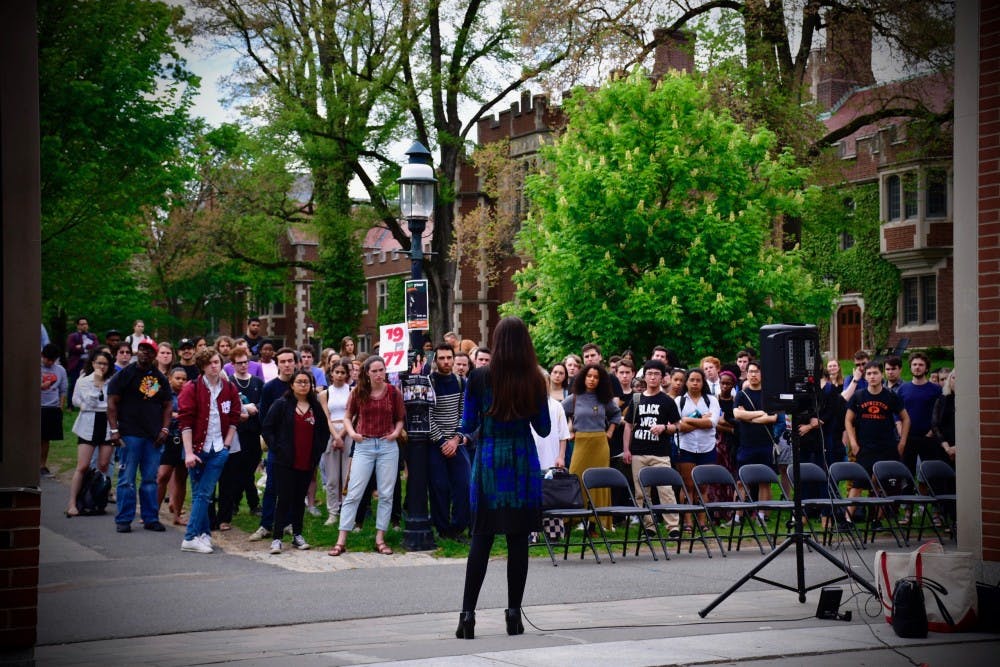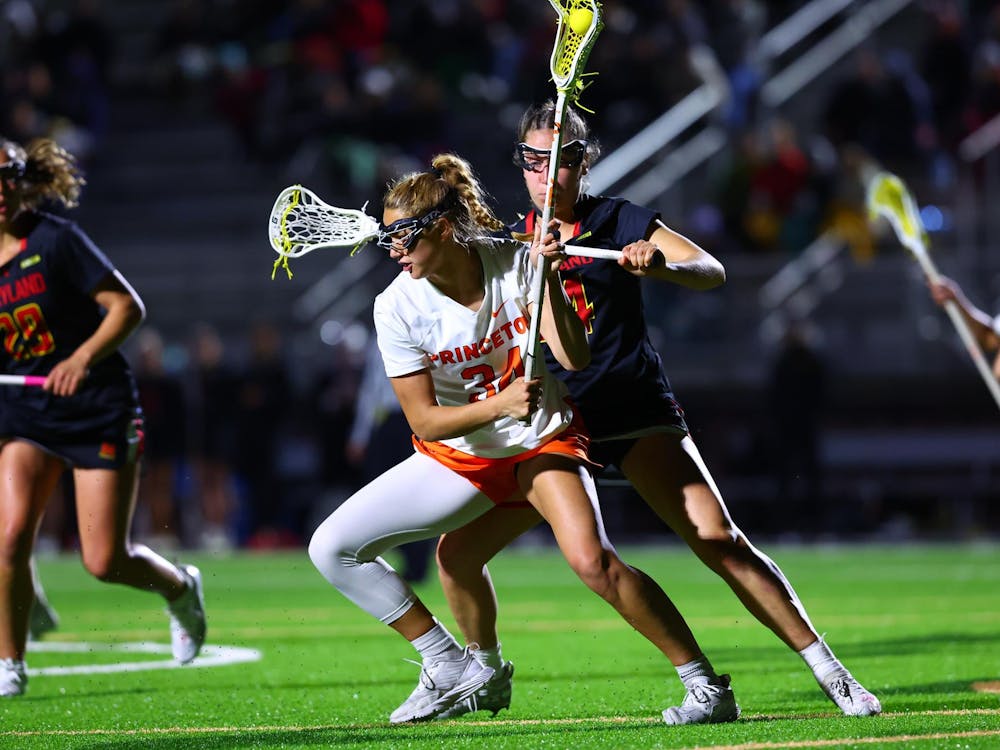Coming into Princeton, I’d heard of the prestigious Woodrow Wilson School of Public and International Affairs, and it was no surprise for me to learn that a concentration in “Woody Woo” was among the most popular at the University, along with the closely associated politics concentration. Naturally, I expected this widespread academic interest in political science and public policy to extend into extracurricular life, manifesting itself in anything from a robust student government to animated grassroots campaigns for change. How wrong I was.
During my first months at Princeton, I discovered that on a campus renowned for its political education, politics appears to stop at the classroom door, reflecting a deeply inbred refusal among Princetonians to disrupt the status quo. This makes it difficult for those of us who are activists to recruit and motivate the general student body.
Take, for instance, a close friend of mine, Amanda Eisenhour ’21, who has led many direct action events over the past two years with Students for Prison Education and Reform (SPEAR), from hosting traditional conferences and speakers to putting on more radical rallies and walk-outs. SPEAR’s major campaign, Ban the Box, calls on Princeton to remove the admissions application question asking applicants to reveal any history of convictions because of the question’s potential connection to racial discrimination. She has consistently lamented how, event after event, she must bribe our peers with free pizza and boba (shorthand for bubble tea — a very popular drink on campus) to show up, often with lackluster results. Meanwhile, events perceived as less political and more “social,” like the ubiquitous dance shows (one occurs seemingly every weekend in the spring), frequently sell out.
It’s not that activism is less “fun,” creative, or even prestigious than more traditional student clubs or activities. This past spring, I directed a campaign under the Princeton Student Climate Initiative to pass a student referendum calling on the University to take stronger action against climate change. A referendum is a statement to the Princeton administration that undergraduates vote upon in elections hosted by our Undergraduate Student Government (USG) in December and April each year. During the week of campaigning leading up to the election (and the several months beforehand, spent planning our campaign and writing our referendum), I made some of my closest friends from all of my first year, especially during the hours we spent tabling in Frist Campus Center.
In the end, however, we weren’t worried about the referendum not passing with the majority vote it required — we were worried about the 33 percent mandatory minimum turnout rate. We ended up getting 42 percent of campus to vote, which was unexpectedly high. Yet, it’s frustrating that, at a university which hosts one of the nation’s premier schools for public policy, we struggle to get even half of our students to vote in campus elections. And while campus politics may seem inconsequential, we don’t fare much better in national elections; the Princeton Vote 100 campaign this past fall, which called on undergraduates to vote in the midterm elections, only mobilized 30 percent of students to sign the pledge to vote, despite the fact that the campaign was sponsored and heavily promoted by the University’s Office of the Dean of Undergraduate Students.
Why is activism so uncommon on Princeton’s campus? I think our overall lack of engagement (compared to other institutions with a stronger history of activism, including fellow Ivies like Yale and Columbia) stems not only from student disinterest, but also from an administration which discourages direct action on campus. Passive lectures and presentations are one thing — Princeton seems to encourage these, and has significant funding available to student groups looking to bring in outside speakers. But as soon as these events turn “political,” by which I mean the involvement of more outspoken tactics like rallies and protests to call for substantive changes, Princeton withdraws that broad support.
Two years ago, for instance, Patrick Flanigan ’18 and Micah Herskind ’19 led a campaign to reform the Honor Code (something you’ll learn a lot about very soon), passing four USG referenda with sweeping margins of support. Despite the fact that the Honor Code itself explicitly states that students can modify the Honor Code via a three-fourths majority vote on referenda, the Princeton administration dismissed these four referenda passed in 2017, remanding the changes to the Committee on Examinations and Standing for approval by faculty.
Or consider the Princeton Title IX Now movement, which focused on reforming the University’s enforcement of Title IX to better protect students who have experienced sexual assault. The group’s work, which began last May, culminated in a days-long protest outside of Nassau Hall. Students sat through multiple rainstorms, sometimes without shelter, to petition for change, while administrators purposefully blocked these students from demonstrating at University events and invalidated these students’ demonstrations as unnecessary and insignificant.
All of this is to say that activism is neither impossible nor completely absent on Princeton’s campus. It just is not as widespread or accepted as I, or some of my peers, would like it to be. As an incoming student, you probably have a lot of other things on your mind, and campaigning for change, whether related to something unjust on Princeton’s campus or in the surrounding community, may seem hard to imagine.
Yet, it is precisely for this reason that we need your help. As a soon-to-be Princetonian, you can help to combat these pervasive challenges. Start by voting in USG and class elections this year (and your local elections while you’re at it). If you’re interested in getting involved in a campaign, your help is always welcome, and don’t be afraid to start your own if you witness injustice, as a close friend of mine, Betsy Pu ’22, has done with her petition calling on Princeton to reform room draw, our (biased as of spring 2019) process of selecting dorm rooms.
And consider this article an exhortation. If you were expecting a robust political activism scene here, as I was, given the prowess of the Woodrow Wilson School, think again. Because of a lack of energy among the student body and an administration that devalues student-driven change, Princeton clings to the remnants of the elitist playground it was just a couple of decades ago. It’s up to us — including you, Class of 2023 — to change that.
Claire Wayner is a rising sophomore from Baltimore, Md. She can be reached at cwayner@princeton.edu.










